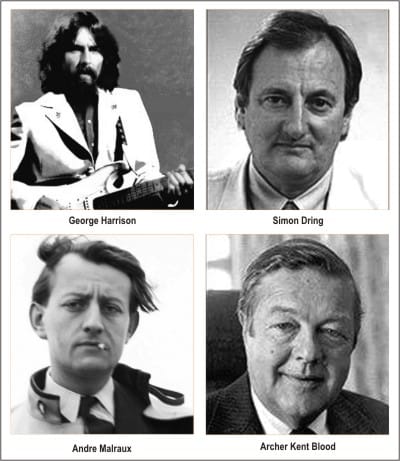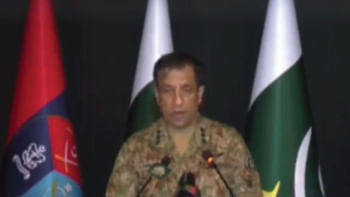Salute to the brave foreign freedom fighters

THE country has celebrated the historic 38th Independence Day on 26th March in a befitting manner. March is a red-letter month in our Liberation War.
The nation remembers the brave foreign freedom fighters, who struggled heart and soul, supporting our liberation war and against genocides, in their respective homelands.
Late Indian Prime Minister Srimati Indira Gandhi supported and showed generous hospitalities, taking into shelter our countrymen in India during the Liberation War.
Famous French soldier-writer-politician and 1960 Nobel Prize Literature winner Late Andre Malraux was the first person, being then French Culture Minister, to become a household name in Bangladesh following his unequivocal support and most historic declaration. In a press conference at his chamber in Paris, during President General de Gaulle's regime, he declared to join the Liberation War of 1971, as a freedom fighter, to fight side by side with the Bangladeshi freedom fighters in the battle field.
This revolutionary move by Andre Malraux created huge sensation all over the world and played a significant role in drawing attention of the world leaders and mobilising support of the world community, in favour of the people of besieged Bangladesh.
Upon the invitation of the Father of the Nation Bangabandhu Sheikh Mujibur Rahman, Marluax paid a memorable visit to war-ravaged Bangladesh in April, 1973. He was given a hero's welcome as a first state guest with deep affection and warmth.
Dhaka University in a special ceremony, conferred upon him Doctor of Law, in recognition of his heroic performances for Bangladesh. He was the first person who was awarded the title since Bangladesh came into being.
Late John Stonehouse, labour MP in an opposition party, supported and campaigned as a freedom fighter, addressing in several street-corner meetings in some commonwealth countries including his homeland Britain, to pave the way for world support in favour of Bangladesh liberation war.
The proposed first Bangladesh Stamps, was presented to him for his heroic performance by Justice Abu Sayeed Chowdhury, the then Special Representative of the Mijibnagar Government, in a simple ceremony at a preview held in the British House of Commons, on 26 July, 1971.
Another British MP Late Peter Shore, the then deputy leader of the opposition labour party in the parliament moved and criticised strongly then Prime Minister Edward Heath's Conservative Party government, seeking support of the British government in favour of Bangladesh liberation war, as a freedom fighter.
Young British Journalist Simon Dring, who worked for the London based world famous newspaper The Independent, came to Dhaka in 1971. He covered the historic round-table meeting between the Pakistani President General Yaya Khan and Bangabandhu Sheikh Mujibur Rahman on 26 March.
He stayed for several days in Dhaka at Hotel Intercontinental in disguise and gathered news and photos of the horrible massacres and guerrilla fights, risking his life. He left Dhaka secretly and published the feature entitled Bangladesh Genocide with photos in The Independent; this gained rapid support of the world for liberation of Bangladesh.
Late WAM Woodeland, an Australian citizen and former army officer, then serving as executive director of the famous Bata Shoe Company in Dhaka, was the first to join as a foreign freedom fighter and fight and direct operations in several battlefields. Later, he was awarded Bir Protik for his heroism in the liberation war.
Archer Kent Blood, the then American Consul-General in Dhaka, resigned from his post in protest against the American government, for failure to support the liberation war; he strongly opposed the brutal military crackdown on the Bangalees. His famous "Blood Telegram" alerted the then US President Richard Nixon and Secretary of State Henry Kissinger to the "selective genocide" and urged them to pressure Pakistan to stop the killing, even though he knew that he was risking his diplomatic career. He then left for home with his family. Later his scholar wife, Margaret Blood, inaugurated the Archer K. Blood Library Hall of the American Centre in Dhaka in 2005 in honour of her husband. It was acknowledgement by the American government of his brave support of the Bangladesh Liberation War.
Internationally acclaimed American singer Late George Harrison composed and sang the song entitled 'Bangladesh' in the Concert for Bangladesh, which was staged at New York's Madison Square Garden in 1971, to help raise money for aid to the famine-ravaged Bangladesh. The second of the two all-stars show was released as a movie and a live triple album. Famous singers Eric Clapton, Ringo Star, Billy Preston, Leon Russell and Bob Dylan also performed in the said concert. Famous Indian sitar player Ravi Shanker joined the performance also.
Famous British poet Allen Ginsberg visited the refuge camp in India during the liberation war. He wrote several poems in a book entitled "September on Jessore Road," which supported and gained fame in favour of the liberation war.
Renowned American Bone Surgeon Dr. Ronald J. Garst, now ninety years old, rushed to Bangladesh in 1972, just after the independence following an appeal by Bangabandhu. He treated and operated upon hundreds of critically wounded freedom fighters with accompanying doctors and nurses of his international hospita, at no cost, for several years. He returned the wounded freedom fighters home after helping them recover fully. Later, he was Project Director and Founder of Pangu Hospital in Dhaka.
Famous BBC journalist Mark Talley, based in New Delhi in India, covered and focused the news of the battles and genocides to the media, during liberation war.
Late Senator Robert F. Kennedy and Senator Edwar P. Kennedy, brothers of the President John F. Kennedy, moved and struggled in favour of the liberation among the Americans, criticising against President Richard M. Nixon's Government.
We, the people of Bangladesh salute those foreign freedom fighters on this historic occasion.
It is high time that our government take some initiative to honour these foreign freedom fighters who bravely fought for our cause in their own ways.
The author is a n advocate and journalist.

 For all latest news, follow The Daily Star's Google News channel.
For all latest news, follow The Daily Star's Google News channel. 



Comments